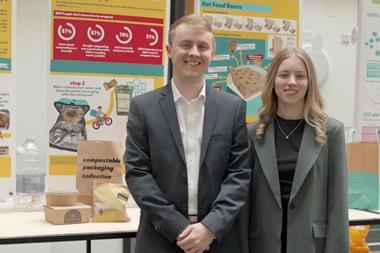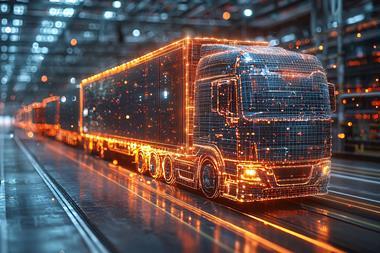Retailers face big challenges on the way to net zero. Cloudfm outlines its proven model to achieve significant carbon reduction, improve localism and accelerate change.
As retailers emerges from the pandemic, the industry’s focus will return to the climate change agenda. Companies must meet their environmental obligations while operating efficiently as the economy recovers, a challenge that will be explored in November when the UK hosts COP26, the UN Climate Change Conference.
Consumers’ attitudes are changing, with shoppers increasingly worried about climate change. According to pollster Ipsos MORI, two-thirds of Britons believe the country is heading towards an environmental disaster.
The roadmap from the British Retail Consortium (BRC) sets targets of decarbonising stores by 2030, deliveries by 2035 and products by 2040. If successful, by 2040 the British public can expect to buy or rent products knowing they have minimal impact on the climate.
What this means is that retail has taken the lead on the issue and promised to act. But the ambitious target comes with big changes to how retailers operate stores and supply chains.
Holistic approach
So how should the grocery sector respond? Cloudfm, a facilities management and technology company, believes it has the answer with a proven approach to minimising waste and carbon emissions, the firm having recently been recognised by research specialist Gartner as a provider of predictive maintenance enabled by the Internet of Things (IoT).
Cloudfm’s model combines data and new technology with behavioural change to accelerate adoption of net zero friendly policies.
And after teaming up with the University of Essex to test models for change across several sectors, the results were clear. Technology has a role to play, but staff must embrace new ways of working and feel a sense of ownership.
As such the company’s holistic approach includes Mindsett, a predictive IoT platform that monitors assets in real time and provides data that can be used to change behaviour. This sits alongside a local sourcing approach that increases first fix rates and reduces the distance engineers must travel.

“Very early on, we saw the power of IoT to combine data and technology to drive efficiency and deliver significant benefits in minimising environmental savings,” says Jeff Dewing, CEO of Cloudfm.
“Early trials have shown that significant carbon savings can be achieved in a short period of time. Across multi-site operations, we’ve seen savings in excess of 19% of monitored energy consumption. We believe that a holistic approach is the only way to achieve the change the retail sector requires in the next decade.”
Mindsett combines IoT sensors with artificial intelligence (AI) and machine learning to reduce costs and eliminate waste. A compliance and risk module allows users to show the potential savings from asset monitoring, while also tracking changes in temperature or failures that could cause issues such as legionella or impair emergency lighting.
When reducing energy consumption in stores and maintaining operational efficiency, the data shows an IoT predictive system that automates a maintenance regime will reduce reactive visits by 65%.
Cloudfm also believes that greater localism in facilities management is key. It makes no sense to send engineers across the country for jobs that local resources can complete. The company’s marketplace was therefore developed to ensure the best qualified local engineer is always available.
People pressure
Another important requirement is creating behavioural change in teams that will be working in and operating the stores. This is essential to reducing energy usage and waste.
The University of Essex’s research shows that the employees that are most likely to act positively to reduce energy usage and waste are usually more engaged with their employers and have higher climate risk perceptions.
The association between work engagement and energy-saving actions can be explained by positive feelings around cost savings. Actions can also be motivated by concern around climate risk and negative feelings about not taking part, but this was less the case for supervisors.

Retailers are already required to report on environmental, social and governance (ESG) issues in their annual reports, and it is likely such obligations will increase in the coming years. The companies that have real-time data on carbon reduction available at the push of a button will be better placed to make decisions and position themselves as leaders to customers and wider stakeholders.
One example is that banks are starting to conduct climate-orientated stress tests. This could lead to them favouring climate-positive businesses when allocating capital.
Net zero opportunity
All this is in the context of net zero’s headline cost of £700bn to £1tn between 2020 and 2050. While it accounts for just 1% of the UK’s estimated GDP of £90tn over the same period, the impact on businesses will be profound.
The UK has shown that climate action can go in hand with economic growth, and the retail sector has led the way. Between 1990 and 2019, the UK achieved record clean growth, with the economy growing by 78% and emissions decreased by 44% over the period.
The challenge for retailers now is to design a programme that rapidly reduces carbon emissions while improving operational efficiency.
Cloudfm believes its approach of an energy-saving technology that engages frontline employees and drives energy-saving behaviours in the workplace is the way to accelerate change. Information about energy use can be especially confusing for consumers – even more so in a hectic workplace. It’s vital to communicate energy use in a clear, comprehensible, and motivating way for employees.
“Time is of the essence if climate targets are to be achieved,” says Dewing. “Profit and purpose are two sides of the same coin, and net zero should be seen as a huge opportunity to conduct a root and branch review of all aspects of operations to understand how we can do things better.
“Efficiency drives profit and carbon reduction. Retailers operate in complex supply chains, and a fresh approach to partnership with shared goals and greater transparency will supercharge efforts in the coming decade.”



















